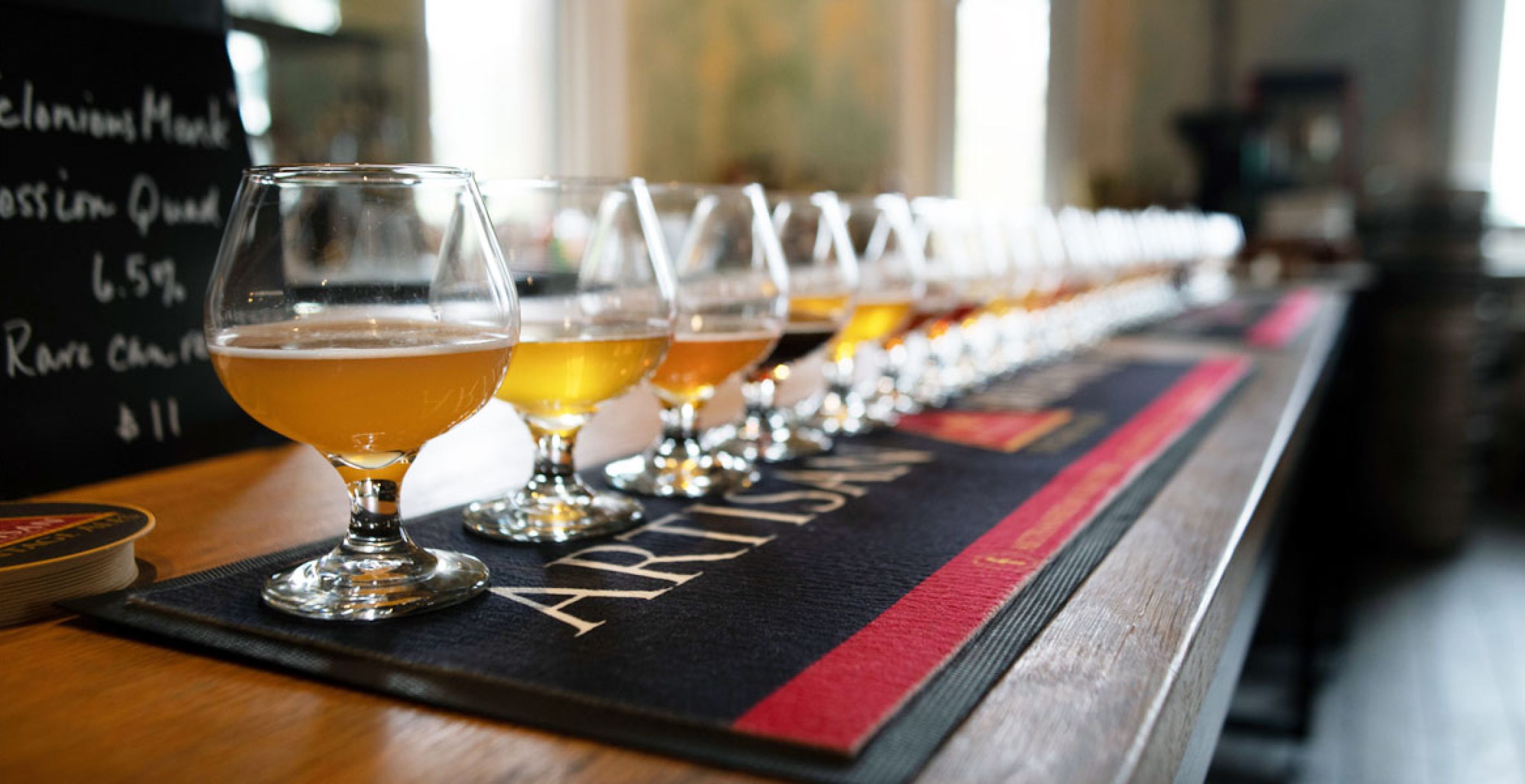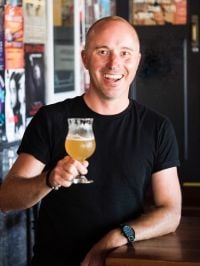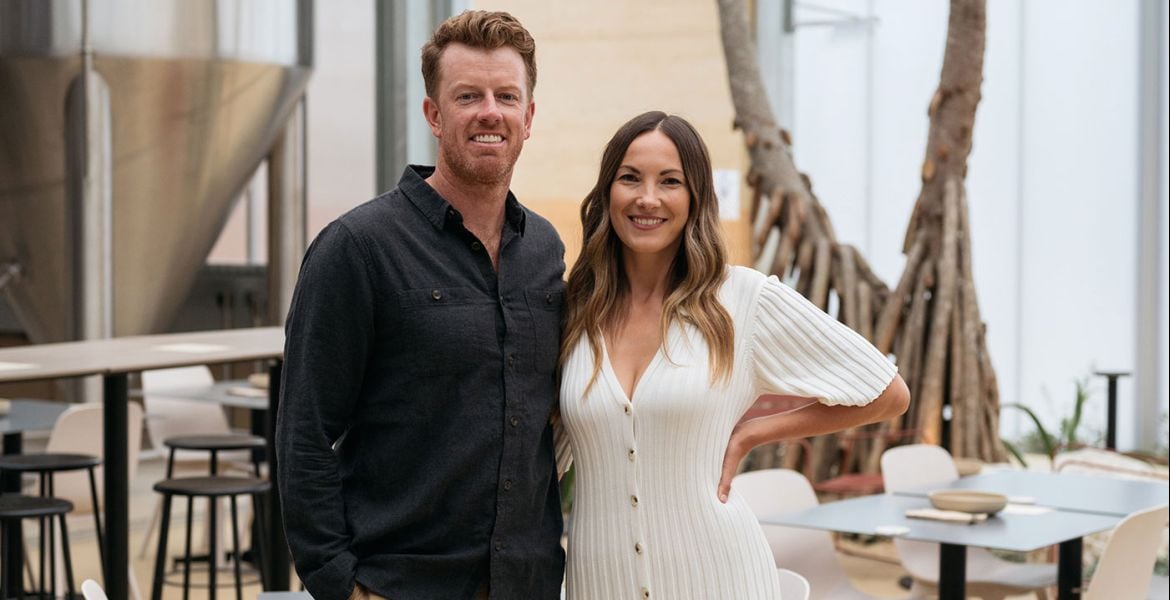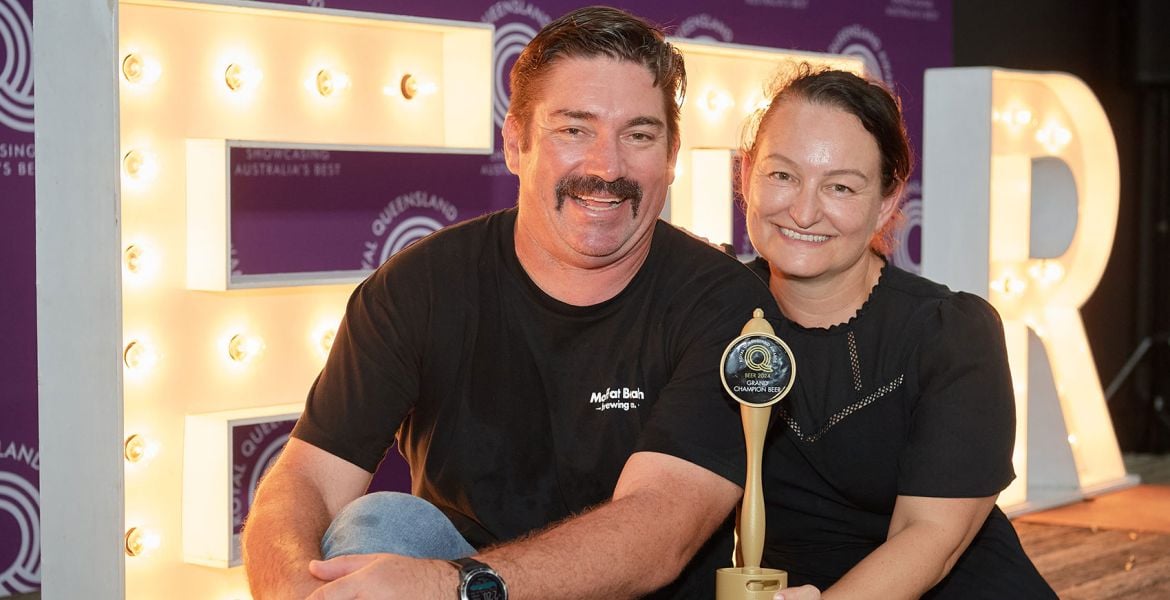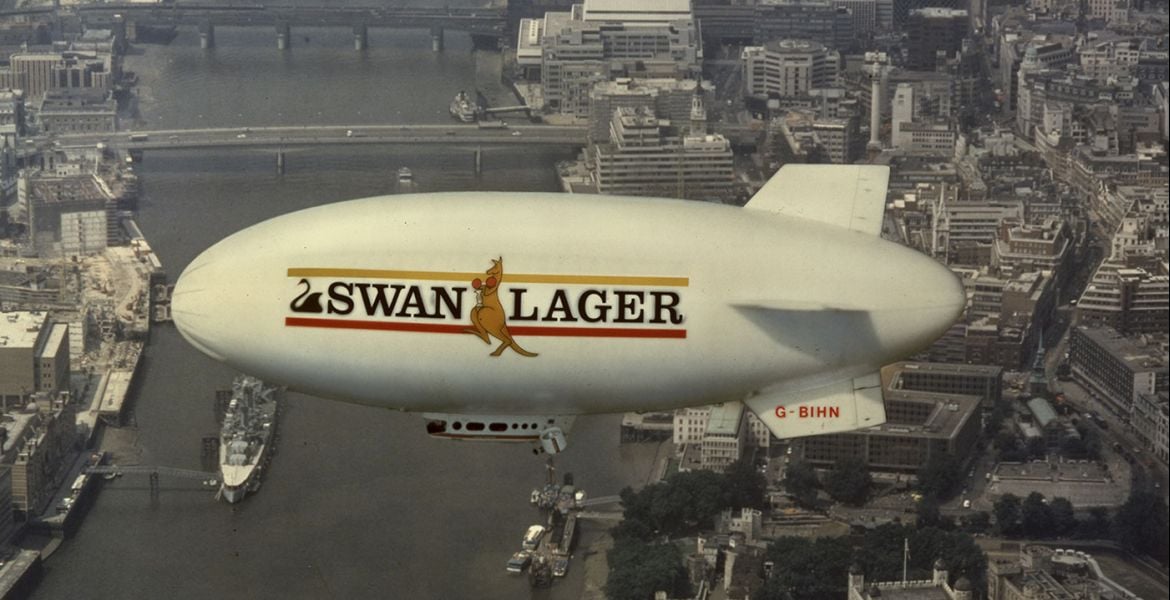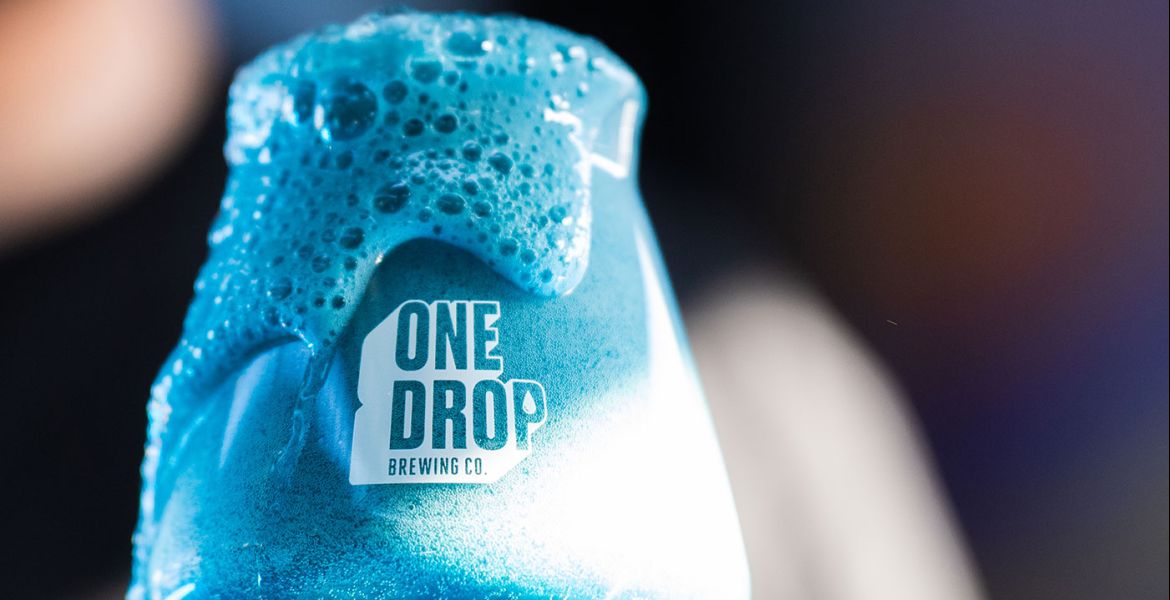Brian and Julia Fitzgerald are a well known and much-loved facet of the WA beer scene, a couple who have turned semi-retirement into a highly enviable proposition: brewing award-winning Belgian-inspired ales in one of Australia’s quaintest locations.
Where the Karri trees meet the Southern Ocean, the Texan born duo operate as Artisan Brewing, making their beers at nearby Boston Brewing in Denmark and creating what they call: "The biggest small brewery that you've probably never heard of!"
Guy Southern caught up with the couple to celebrate five years of Artisan through the lens five of their favourite beers. However, as you’ll discover, their story stretches back far longer and is one that’s evolved through a continuing run of serendipity, as if being watched over by a mischievous Belgian gnome...
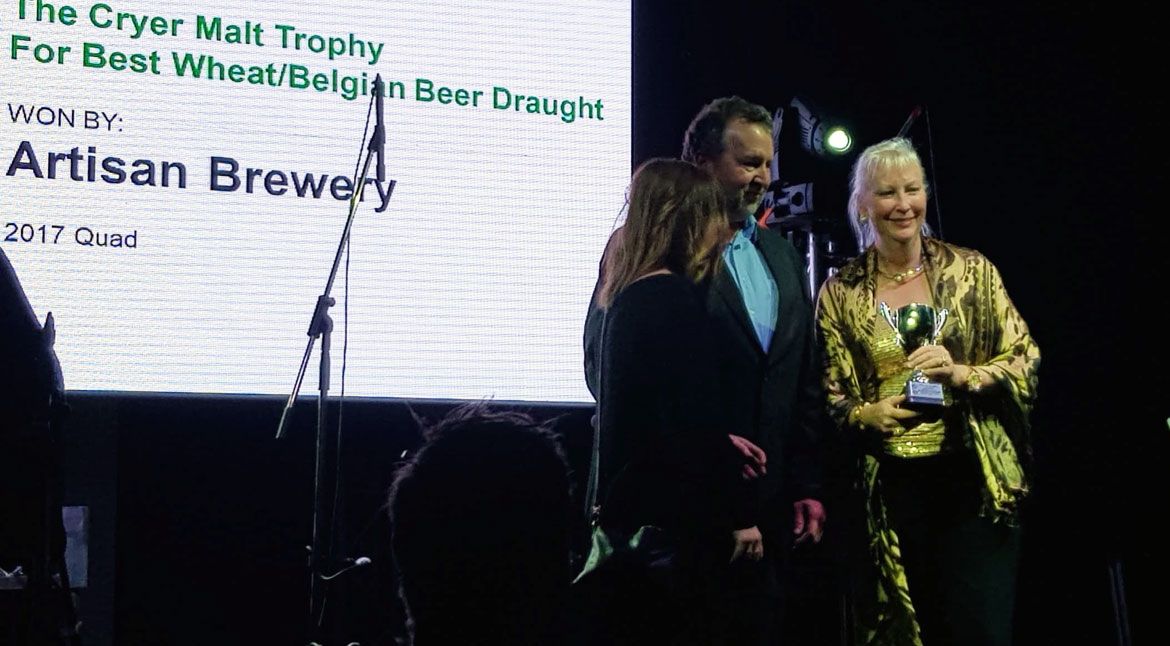
Conversations with Brian are warm, quietly affable and filled with anecdotes punctuated by knowing chuckles. Conversations with Julia sparkle with vivacity, laughter and a savvy conviviality. Conversations with the pair are delightful, often serpentine and a blend of both, which, during the preparation of this anniversary article, revealed themselves as a series of vignettes rather than a specific story of each beer.
It seems appropriately representative. Anyone who has spent time with the Fitzgeralds at a beer festival will note that this is usually what occurs – more often than not while enjoying multiple near double digit ABV beers.
After successful global careers as, respectively, a geophysicist specialising in the IT side of seismic activity (Brian) and regional manager of multiple oil hardware and software companies (Julia), the Fitzgeralds decided it was time to enjoy the quiet life. Brian’s near 20 year homebrewing expertise had been formalised by the American Brewers School, a stint at Saint Arnold Brewing Texas, BJCP qualification, becoming Australia’s first Cicerone, and running the WA Brewers Association for five years and more, so it’s little surprise the downtime from a life well lived should manifest as the Fitzgerald’s idea of relaxation.
“The irony is that we came to Australia because we were both workaholic expats and we said, ‘Australians are great because they work hard enough to play hard' and now we’re laughing, saying, ‘Well, that didn’t work out!'.
"But it’s also about working in what we love,” Julia says, laughing.
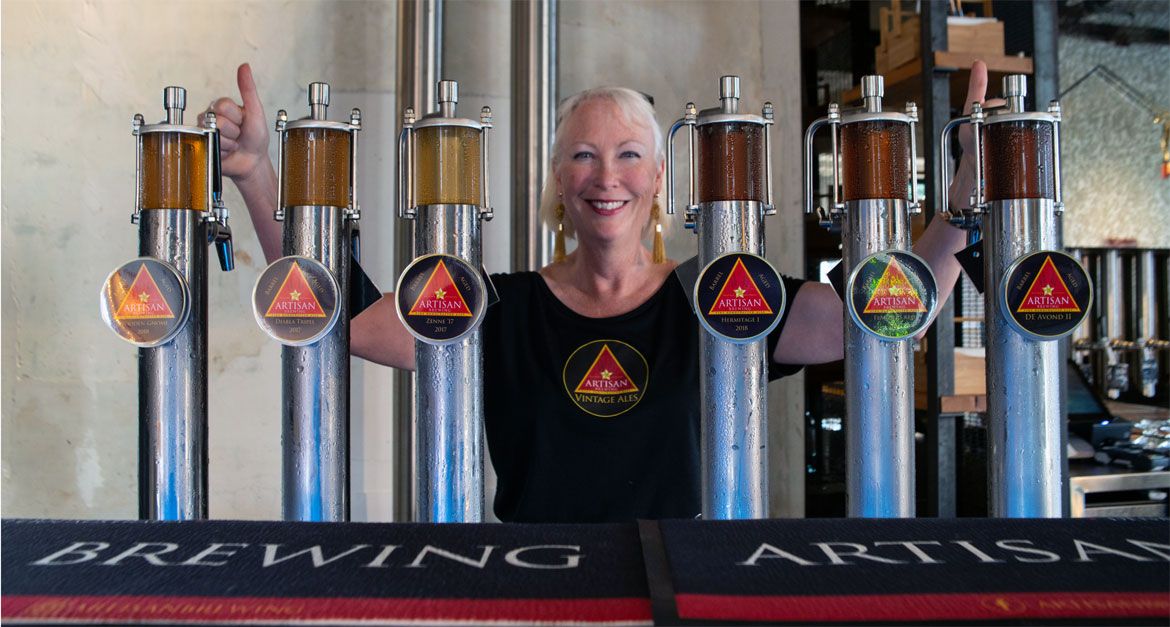
Post their corporate careers, the Artisan concept began as a brewing equipment company with a view that it would one day fund a brewery.
“We started up Artisan Brewing initially as an equipment company," Brian says. "Because of my travels around the world I was seeing much better Corny (Cornelius) keg homebrewing equipment overseas and in 2005 I said, ‘I’m bringing in a 20-foot container and I’ll see if I can sell them.’.
“It was really risky but they were instantly snapped up. Pretty soon we were probably the largest Australian importer of Corny kegs; we did over 25,000 of them. The idea was to build up money to build a brewery but when the GFC hit we just had to shelve the brewery plans and refocus our business and so we ended up doing draught beer equipment and that’s gone really well for us.”
As the importing market changed due to increased access to keg alternatives, the couple shifted the business towards back to the original plan: a brewery. Artisan launched in 2014 with a clear statement of intent if there was ever one.
“Who would launch a brewery with an 8.2 percent farmhouse red?” Brian says with a smile.
Some of the answers to that rhetorical question can be traced back over 30 years and they form the foundation of Artisan Brewing’s ethos.
“I was a bartender in my uni years and worked in bottleshops selling fine wine," he says. "For beer I used to drink Miller Lite, that was my beer. I didn’t see any reason to drink anything else. Then, in the late 80s, a friend of mine was working in Europe and he came back and said try this. He put a beer in front of me and said, ‘Don’t think of it as a beer, think of it as a tasty beverage and put your wine hat on.'.
"So I did and I said, ‘It’s creamy, it’s got aromatics of banana and clove’ and I said, 'What is it?'."
When told it was a hefeweizen, his response was: "A 'hefe-what?”
But he enjoyed the flavour and it became his epiphany beer, leading him to ask: "How many other beers are there out there like this?" To which he friend answered: "Hundreds."
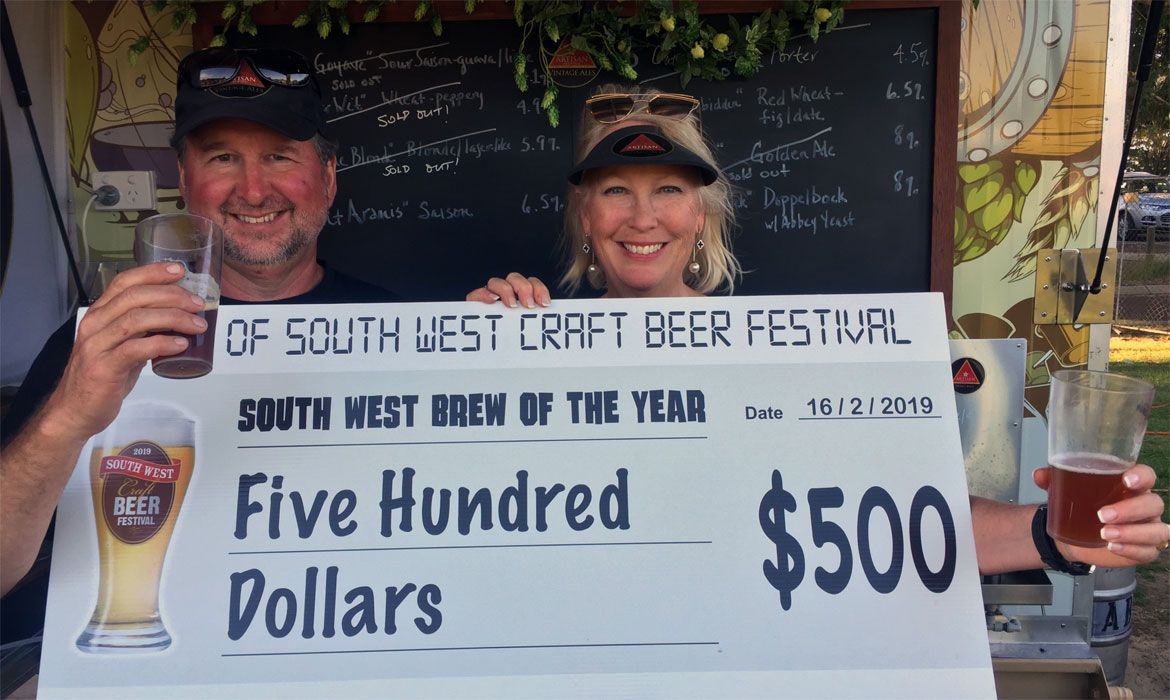
“Then I started homebrewing in 1991 and I loved hoppy beers. And our original plan was to bring American pale ale to Australia but Little Creatures beat us out by a little bit,” he says.
“After I graduated from brewing school in 2002, probably the most interesting thing for me was yeast. For a lotta the other brewers it was hops, and you can see that people today love hops. As an artist with a different palette of colours the hop brewers have great things to select from, from bittering to aromatic hops, but I was intrigued with yeast – there’s still a lot of unknown.
“A 2006 trip to Belgium was just mind-blowing. You go from town to town and try a different golden ale and they all tasted different. What you find in Belgium is that different strains are used in different places and that’s when we said, ‘This is really what we’ve gotta do’ because we love the yeast. So, we decided to have a niche in Belgian beers.
“That’s part of the thing about Artisan, we use a lotta different yeast in beers and blend different yeast; some beers can have up to four different yeast strains plus bacteria. We don’t have a house strain that goes across all beers, we mix it up but we think it shows the style. Yeast makes a huge difference in the flavour of the beer."
He describes their approach as "kind of a running experiment" but points out their logo uses the term "Vintage Ales".
"Wine is different every year and, of course, brewers take a lot of effort with science to make the same beer," he says. "But we said if there’s variations year to year why don’t we just celebrate those differences."
So, of the beers to date, which are the most special to Brian and Julia?
2014: Zenne 14 – Sour Saison
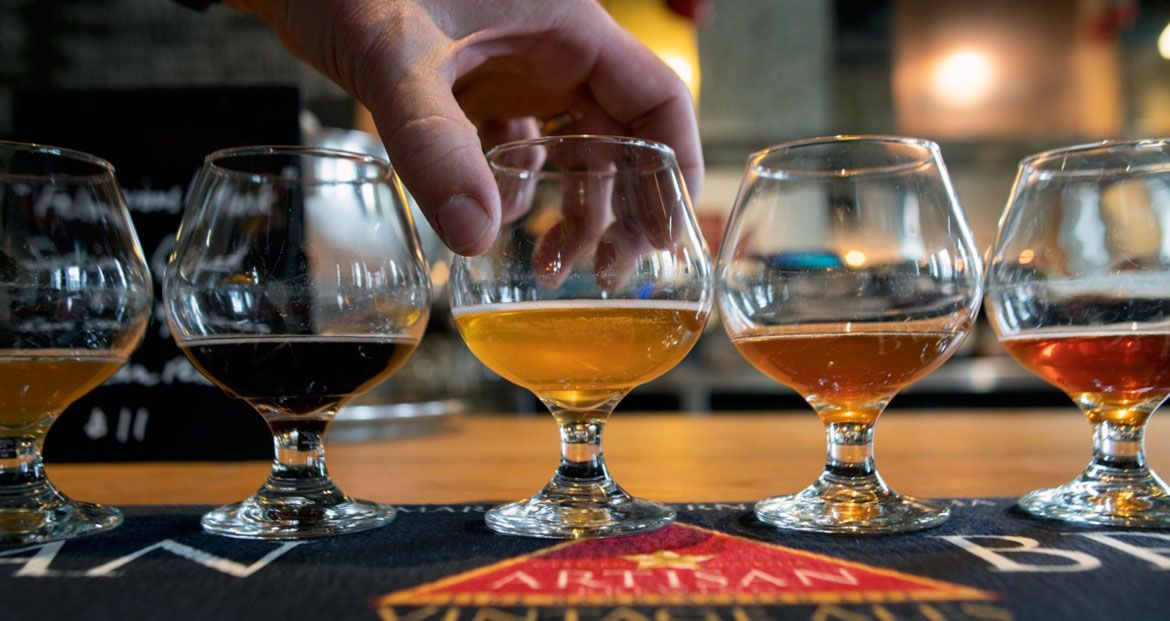
After their Farmhouse Red debut, Artisan recovered some of the yeast and decided to pitch it into a lighter style saison in order to get more organic acid production and lower ester development; however, things didn’t go exactly to plan.
“This one didn’t start off as a good story at all," Julia says. "It was a disaster. We were incredibly disappointed with what was happening and we were just starting out, with nothing to lose, and we didn’t want to dump our product but it ended up coming good.”
Brian explains: “We made this beer at Old Coast Road, and we bottled some of it and there was something wrong with the bottling – we didn’t get the carbonation right. So we ran some of the Zenne off and we weren’t happy with it and we said that it was an experiment that went wrong, it was too acidic and it didn’t have enough funk.
“We were sitting around with some brewers and cracked it open after we’d just had a Jester King and they said, ‘You need that funk in this beer’. So, we pulled some kegs off and we re-blended it with what we thought was Brett but turned out to be the Brett not Brett yeast, which was originally called Brettanomyces Bruxellensis Trois.
“It was then like a different beer. It worked out great and when we launched that in 2015 at Freo BeerFest it was a favourite. What was interesting at the time back then was there weren’t many people doing Berliner Weisse or gose and when we launched it at the Freo BeerFest it had been a year old at that point, people found it really refreshing, especially in the heat.
“We’ve tried to make that beer over and over again and it’s really tough because that beer was a mistake.”
The challenge of replicating Zenne 14’s serendipity was compounded by moving gypsy production to Boston, meaning that another iteration wouldn’t be released for another three years, this time wild fermented in former apple barrels from a local cidery. The original, however, lives on in the minds of those lucky enough to try it.
2015: Awesome Blonde
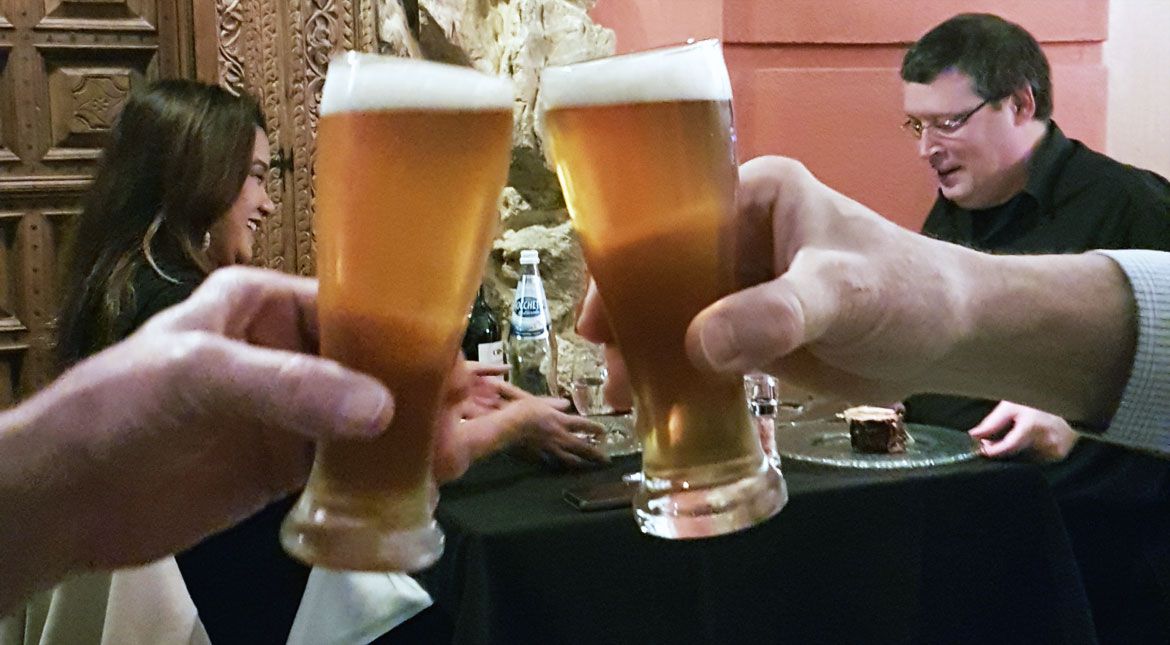
The evolution of an earlier beer, Autumn Blonde, this gluten-reduced core range beer was Artisan’s first gold medal-winning beer Perth Royal Beer Show. Belgian yeast drives fruit and spice complexity and, while the overall experience is at the lower ABV end of the brewery’s portfolio, there is a good reason for that.
“Trappist Blonde was always one of my favourite beers to drink," Brian says. "And we looked at it also as a beer that was attractive to lager drinkers. It’s the same ingredients but the yeast is different.”
2016: Tripel Treating
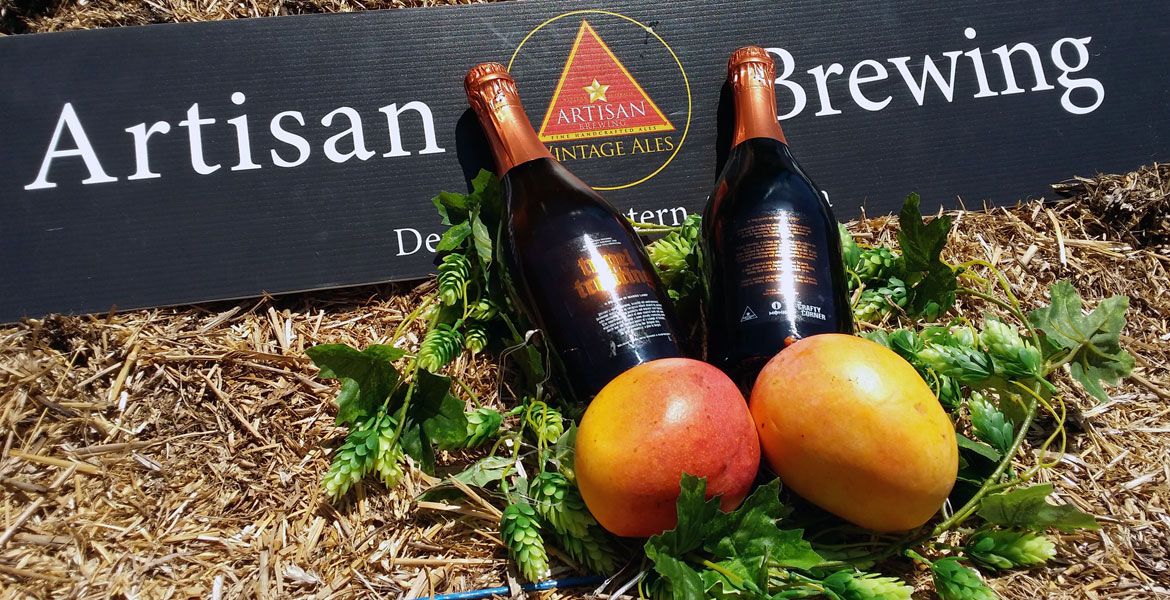
The beer that brought Artisan broad attention. Released just before Christmas 2016, there was little in the market like this fruited Belgian Tripel, and certainly nothing in bronze foil wrapped champagne bottles carrying 10.4 percent ABV.
“We made a beer called Diabla, which is our annual strong Belgian golden, and the story is the guys from Cellarbrations Hami Hill went down to Clancy’s Fremantle and tried it on tap," Brian says. "One of the guys had a mango tree in his backyard he said, ‘Can you imagine what would happen if we put mangoes in here?’. So that became the basis for the Tripel Treating.
“We’re particular when releasing beer, which is why the Tripel Treating didn’t go out on Halloween. It just wasn’t mature and I wanted it drinking well, and it took a long time to mature at that high ABV to reduce some of the heat from the alcohol.”
In addition to mangoes, a small amount of fresh raspberries were added to balance the sweetness, and they're still prominent in bottles that have been cold stored. Tripel Treating went on the win double gold at the AIBAs and Perth Royal Beer Awards as well as being named the 2017 South West Beer Fest champion beer.
2017: Quad '17
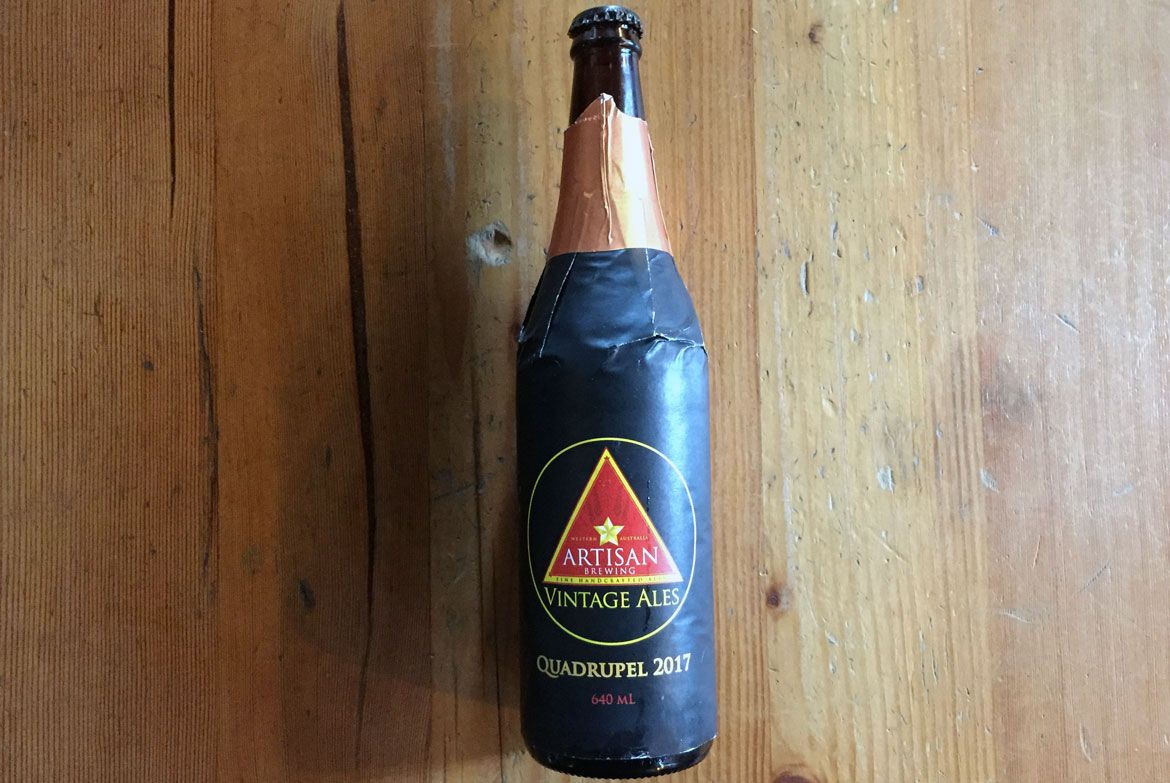
In another stroke of creative luck, what began with brewing issues eventually defined this multi-year, multi-award-winning beer, as Brian explains with a chuckle.
“I didn’t know how much malt the mash tun at Boston could handle but I found out that 700 kilos was too much. It jammed the rakes and I couldn’t sparge properly so we took the first runnings and we dumped the rest of it, which took the ABV up from 9 to 11 but it was so damn good we decided that that’s the way we’re going to do it every year.
“Every year, we put it into the Perth Royal Beer Awards and it gets a higher score than the previous year. We are pretty chuffed that it’s won two trophies and a gold medal. It was only four-months-old when it was first judged and I had no idea what it tasted like because, after we made it, we just put it in the cellar to store.
"So, after the judging was done, I asked the stewards if they could pour some and tasting it I was thinking, ‘It’s still immature, it needs more time’ but one of the judges came up to me afterwards and said, ‘Oh, you made that Quad? I’m an associate judge and I wanted to score that 20 [out of 20] and I had to ask everyone if that was OK.'.”
2018: Le Pont Saison
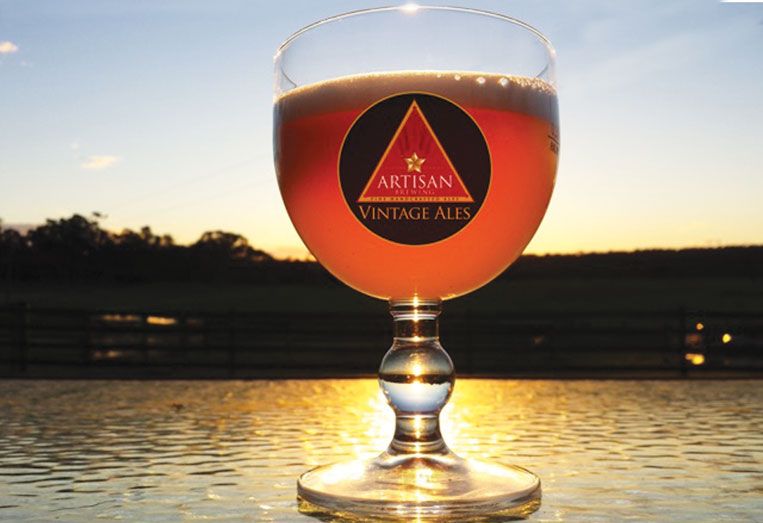
For this Perth Royal Beer Awards gold medal-winning beer (not actually the one pictured, but it's a lovely sunset shot...!), Artisan’s mischievous gnomic pneuma continued to strike.
“We were approached by a venue who said, ‘Hey, can you do us a Saison like Dupont, something that we can pour all day?' and I said, ‘Are you sure you don’t want fruit? You don’t want Brett? You don’t want sour? You don’t want herbs? Spices?’.
"They said no and so I brewed a straight saison and it won a gold medal, but the funny thing is that the venue never bought any.
“We’ve been brewing saisons for a long time, as a homebrewer and as a commercial brewer. We just love the style and a lot of brewers say it’s their desert island beer. It’s malty, it’s hoppy, it’s yeast forward, it’s funky, it’s a style that does a lot of stuff. And it goes great with seafood, so if you’re on a desert island you’ve got something to pair with all the fish."
2019: 2017 Flanders Red Solera
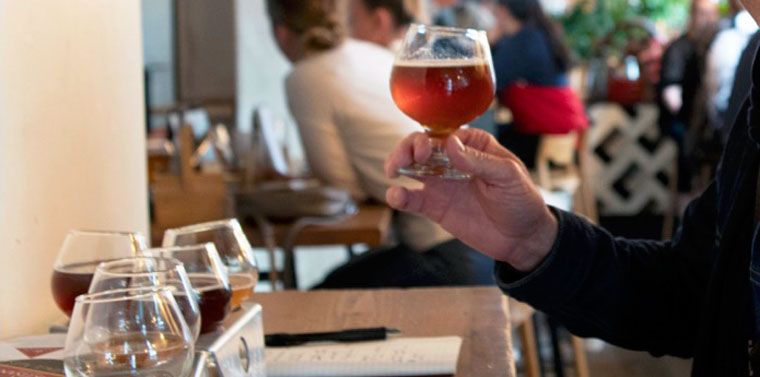
As bonus beer for their anniversary, 2017 Flanders Red Solera provides a window into the future of Artisan.
“Looking at this year and ahead, it’ll be the barrel-aged stuff that’s really coming out," Brian says.
“2017 Flanders Red replaced the Quad ’17 when that was removed from barrels and has since been topped up in a solera style. It was left for two-and-a-half years in barrels and then we left 30 percent of the original beer in barrels before topping them up because the Brett is established.
“What I love about this beer is the length. It gets on your tongue; you can really taste that acid and it really opens up the taste buds to the cherry flavour and malt. The Brett and acid in there are a great combination of flavours. Every year we intend to release it as a solera, every Belgian national day.”
You can read our previous Five Years In Five Beers interview with Modus Operandi here. And, if you're reading this in time, you'll catch Brian and Julia celebrating turning five at the 2019 Freo BeerFest.



